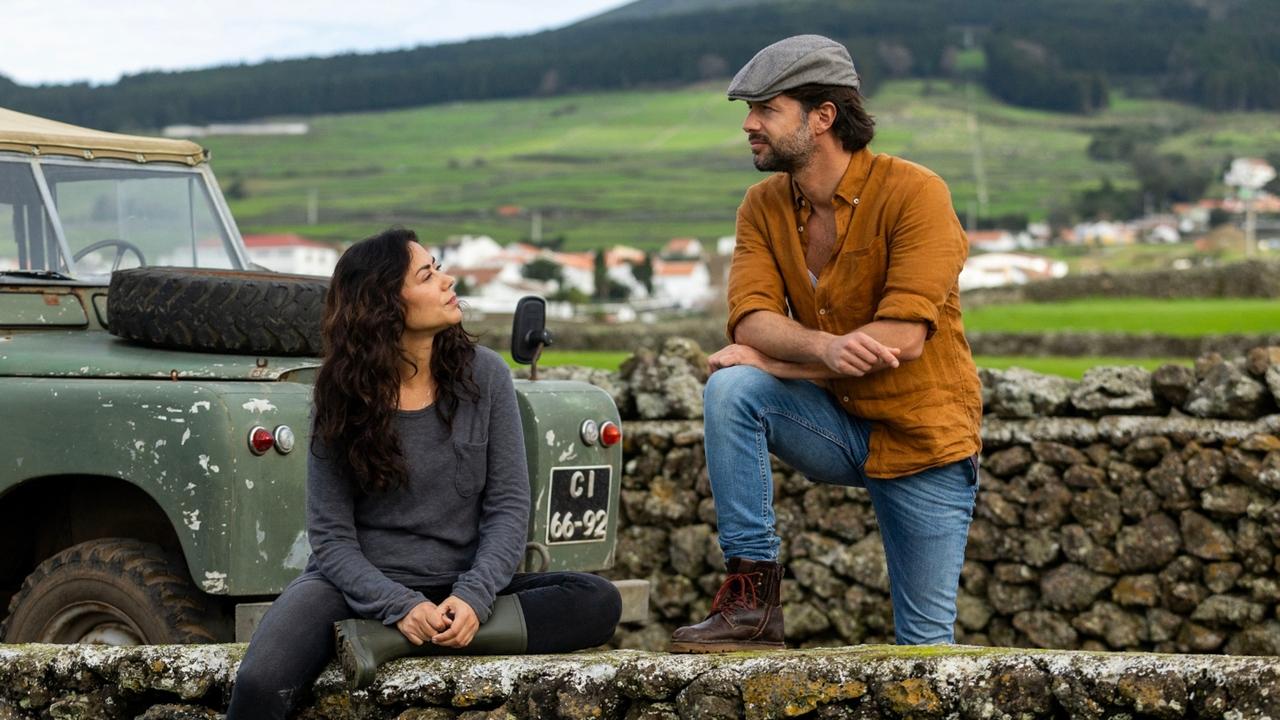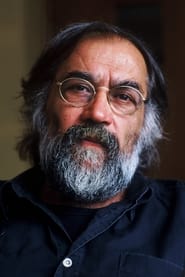
"Lady of the Sea" is a gripping period drama that weaves a tale of resilience, transformation, and the search for salvation. The narrative centers on the character of Joana Gonçalves Pedrosa, portrayed with nuanced depth by Sofia Ribeiro. Joana's life takes a harrowing turn on her birthday when her abusive husband, upon learning of her pregnancy, threatens her safety. In a moment of sheer desperation, Joana makes the brave decision to flee, embarking on a perilous journey that leads her to the deck of a boat harboring a group of criminals. The tension escalates as Joana becomes acutely aware of the imminent danger she faces among these outlaws. With an unyielding instinct for survival, she makes a daring choice to abandon the vessel, plunging into the treacherous waters in a bid for freedom.
The film captures the raw intensity of Joana's swim towards the mysterious Terceira Island, a beacon of hope in the vast ocean. Her arrival on the island's shores is not just a physical landing but a symbolic rebirth, as she sheds the remnants of her past life. It is here, on the sands of this uncharted territory, that Joana's fate intertwines with that of a lost child named Chico. Played by Afonso Pimentel, Manuel Bettencourt is another pivotal character whose path crosses with Joana's under the most unexpected circumstances. As she emerges from the sea, clutching the child, the island's inhabitants are quick to ascribe divine significance to her appearance. The timing of her arrival, coinciding with a significant religious ceremony, leads to an extraordinary case of mistaken identity, with the local populace hailing her as 'Our Lady of the Sea', a revered figure in their spiritual pantheon.
The story then delves into the complexities of faith, identity, and the human capacity for redemption. As Joana, now revered as a saintly figure, navigates her newfound status, she finds herself at the heart of a community grappling with its own beliefs and desires. The narrative expertly balances the personal journey of Joana with the collective awakening of the islanders, as they all confront the realities of their lives and the mirages of their faith. "Lady of the Sea" is a profound cinematic experience that offers a tapestry of rich character development, breathtaking cinematography, and a thought-provoking exploration of the human spirit. It invites viewers to question the nature of sanctity, the power of appearances, and the enduring quest for a life of peace and dignity.
Full Cast of Lady of the sea

Sofia Ribeiro

Afonso Pimentel
Afonso Pimentel delivers a compelling performance as Manuel Bettencourt in the television series "Lady of the Sea" (A Teia), bringing depth and complexity to a character that is central to the show's intricate narrative. Pimentel embodies Manuel with a raw intensity, capturing the essence of a man torn between his loyalty to his family, his love for the enigmatic protagonist, and the dangerous underworld he navigates. His portrayal is nuanced; he seamlessly transitions from a rugged, stoic fisherman to a vulnerable lover, showcasing his versatility as an actor. Pimentel's chemistry with the rest of the cast, particularly with the character he shares a tumultuous relationship with, is palpable, adding authenticity to the emotional stakes of the series. As the plot thickens, his performance becomes even more gripping, leaving viewers captivated by his character's moral dilemmas and the poignant moments that define Manuel's journey. Afonso Pimentel's portrayal of Manuel Bettencourt is a testament to his talent and commitment to his craft, making it a standout performance that resonates throughout the series.

Júlia Palha

João Jesus

Albano Jerónimo
In the mesmerizing Portuguese television series "Lady of the Sea" (original title "A Marca da Senhora"), Albano Jerónimo delivers a compelling performance as Padre Filipe Pinheiro, a character that embodies the complex interplay of faith, doubt, and human frailty. Jerónimo's portrayal of the parish priest is both nuanced and intense, capturing the essence of a man torn between his spiritual duties and personal desires. His Padre Filipe is a pillar of the community, offering guidance and comfort to his parishioners, yet he is also a man grappling with his own demons, struggling to reconcile the teachings of his faith with the often harsh realities of life. Jerónimo brings a depth of emotion and a sense of gravitas to the role, making Padre Filipe a relatable and multifaceted character. His performance is marked by a keen sensitivity to the quiet moments of introspection, as well as the fortitude displayed in moments of crisis, earning him critical acclaim and viewer empathy for his authentic and heartfelt embodiment of the conflicted clergyman.

João Reis

Cláudia Vieira

Vera Kolodzig

Ana Marta Ferreira

Pedro Hossi

Maria João Pinho

Marcantonio Del Carlo

Anabela Moreira

Graciano Dias

Mariana Pacheco

Helder Agapito

Manuela Couto

José Medeiros

Rita Loureiro

Romeu Costa

Tomás Alves

Ana Varela

Vítor Silva Costa

Ana Lopes

Ivo Alexandre

Inês Pires Tavares

Duarte Gomes

Inês Sá Frias

Luís Lourenço

Inês Curado

Beatriz Godinho

Ivo Arroja

Rodrigo Trindade

Hélder Afonso

Francisca Salgado

Marina Mota

Rita Blanco

Virgílio Castelo

André Albuquerque
Crew of Lady of the sea
Full backstage crew list →- Released on February 05, 2024